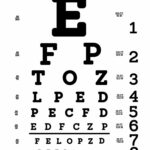Forensic psychology, a captivating nexus where the intricacies of the human mind meet the cold, hard realities of the legal system, often sparks a peculiar fascination. This allure likely stems from our inherent desire to understand the ‘why’ behind aberrant behavior, to decipher the motivations that drive individuals to commit acts that defy societal norms. What exactly does a forensic psychologist do?
The role is multifaceted, encompassing a wide array of responsibilities that demand a unique blend of clinical acumen, legal savvy, and unwavering objectivity. They are essentially bridge-builders, translating complex psychological concepts into terms understandable and applicable within the courtroom.
I. Assessment and Evaluation: Unveiling the Psyche
At the heart of forensic psychology lies the meticulous assessment and evaluation of individuals involved in legal proceedings. This isn’t merely a superficial overview; it’s a deep dive into the cognitive, emotional, and behavioral underpinnings of a person’s actions.
A. Criminal Responsibility Evaluations: Can the defendant be held accountable?
Perhaps one of the most crucial assessments is determining criminal responsibility, often referred to as sanity evaluations. Forensic psychologists employ standardized psychological tests, clinical interviews, and a thorough review of background information (police reports, witness statements, medical records) to ascertain whether a defendant possessed the requisite mens rea – the guilty mind – at the time of the alleged offense. Did they understand the nature and consequences of their actions? Could they distinguish right from wrong? These evaluations are critical in cases where the defendant’s mental state is called into question.
B. Competency to Stand Trial Evaluations: Understanding the Legal Labyrinth.
Beyond criminal responsibility, forensic psychologists also assess a defendant’s competency to stand trial. This focuses on the individual’s present mental state and their ability to understand the charges against them, assist their attorney in their defense, and participate meaningfully in the legal proceedings. A defendant deemed incompetent cannot be tried until competency is restored, often through therapeutic intervention. This safeguards the defendant’s due process rights.
C. Risk Assessments: Predicting Future Behavior.
Risk assessments are another cornerstone of forensic psychological practice. These evaluations aim to predict the likelihood of future violent or criminal behavior. Factors considered include an individual’s history of violence, substance abuse, personality traits, and social support systems. Actuarial instruments, combined with clinical judgment, are utilized to provide a structured and evidence-based assessment of risk. These assessments inform decisions regarding sentencing, parole, and civil commitment.
D. Custody Evaluations: The Best Interests of the Child.
In civil court, forensic psychologists are frequently involved in custody evaluations. These assessments are designed to determine the optimal parenting arrangements for children during divorce or separation. The psychologist conducts interviews with parents, children, and other relevant individuals, observes parent-child interactions, and reviews relevant documents to assess each parent’s capacity to provide a safe, stable, and nurturing environment. The ultimate goal is to recommend a custody arrangement that serves the best interests of the child, prioritizing their emotional and psychological well-being.
II. Expert Testimony: Bridging Psychology and the Law
Forensic psychologists serve as expert witnesses, offering their specialized knowledge to the court. This involves translating complex psychological findings into clear, concise, and legally relevant testimony. They must be adept at explaining technical concepts in a way that judges and juries can understand, while also maintaining objectivity and adhering to ethical guidelines.
A. Presenting Psychological Findings: Clarity and Objectivity.
Expert testimony requires a mastery of communication skills. The forensic psychologist must be able to articulate their opinions clearly, explain the methodology used in their evaluations, and address potential challenges to their findings. They must also be prepared to withstand rigorous cross-examination from opposing counsel, defending the validity and reliability of their opinions.
B. Educating the Court: Demystifying Psychological Concepts.
A key function of expert testimony is to educate the court about relevant psychological concepts. This might involve explaining the symptoms of a particular mental disorder, the limitations of eyewitness testimony, or the factors that contribute to false confessions. By providing the court with a solid understanding of psychological principles, the forensic psychologist helps ensure that legal decisions are informed by sound science.
III. Consultation and Training: Shaping Legal Practices
Beyond direct assessment and testimony, forensic psychologists also consult with attorneys, law enforcement agencies, and correctional facilities. They provide guidance on a wide range of issues, from jury selection strategies to the development of effective interrogation techniques.
A. Jury Selection: Understanding Juror Biases.
Forensic psychologists can assist attorneys in selecting juries that are more likely to be receptive to their case. This involves conducting community attitude surveys, analyzing potential jurors’ backgrounds and beliefs, and identifying potential biases that could influence their decisions.
B. Law Enforcement Training: Improving Investigative Techniques.
Forensic psychologists provide training to law enforcement officers on topics such as interviewing techniques, crisis intervention, and recognizing signs of mental illness. This training helps officers improve their investigative skills, de-escalate potentially volatile situations, and interact more effectively with individuals who have mental health problems.
C. Correctional Psychology: Rehabilitation and Reintegration.
Within correctional facilities, forensic psychologists provide mental health services to inmates, conduct risk assessments, and develop rehabilitation programs. They work to address inmates’ psychological needs, reduce recidivism, and facilitate their successful reintegration into society.
In essence, the forensic psychologist is a pivotal figure in the intersection of law and psychology. Their expertise informs legal proceedings, safeguards individual rights, and contributes to a more just and equitable legal system. The multifaceted nature of their work, coupled with the inherent complexities of the human psyche, continues to fuel the public’s enduring fascination with this dynamic field.








Leave a Comment